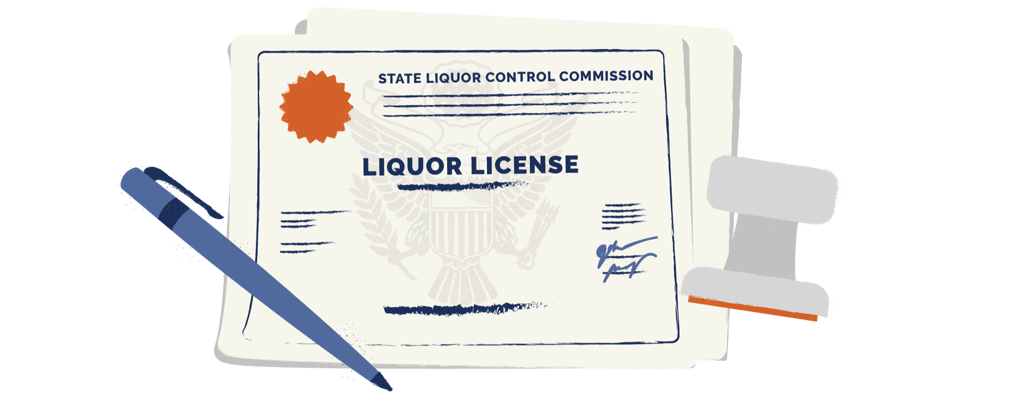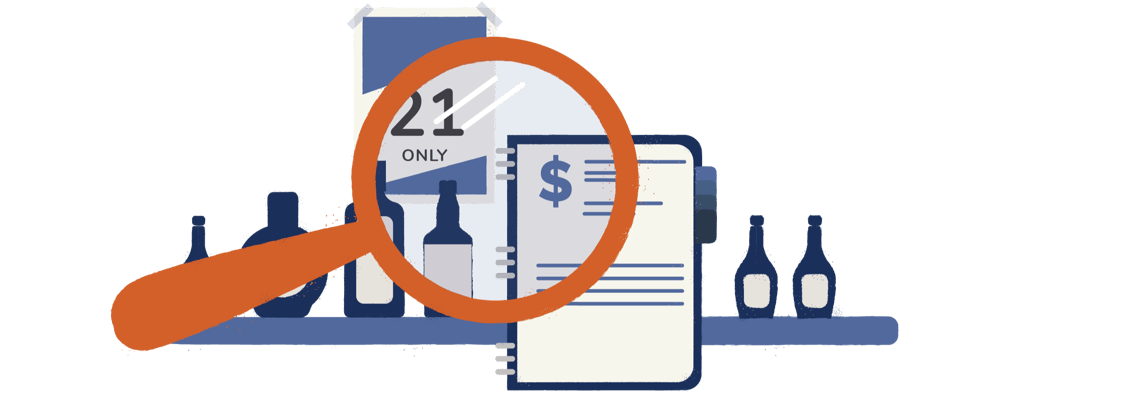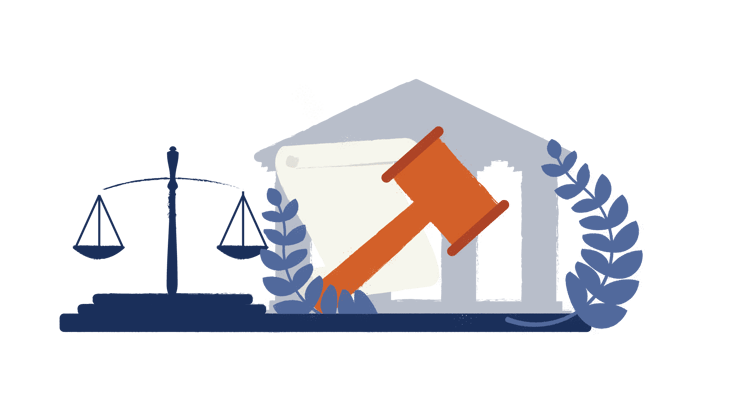
Vermont Department of Liquor and Lottery
1311 US Route 302, Suite 100
Barre, VT 05641
Division of Liquor Control
Phone: 802-828-2345
800-642-3134 in Vermont
Fax: 802-828-2803

How to Get a Liquor License in Vermont for Your Bar or Restaurant
Understanding the process and requirements for obtaining a liquor license in Vermont is crucial for bar and restaurant owners in the state.
Obtaining a liquor license in Vermont is an important step for bar and restaurant owners looking to serve alcoholic beverages legally. The process can seem daunting at first, but with the right information, you can navigate through it smoothly. In Vermont, the Department of Liquor Control (DLC) is responsible for issuing liquor licenses and ensuring compliance with state laws and regulations.
To apply for a liquor license in Vermont, you must first determine the type of license that best suits your establishment. There are several types of licenses available, including on-premises, off-premises, and manufacturer licenses. Each license category has its own set of requirements and restrictions, so it's important to choose the one that aligns with your business model.
Once you have identified the appropriate license type, you can begin the application process. The DLC provides detailed instructions and application forms on their website, which you can download and fill out. The application requires information such as your business name, address, ownership structure, and a detailed description of your establishment's operations.
In addition to the application form, you will need to submit supporting documents, such as a floor plan of your premises, a certificate of occupancy, proof of liability insurance, and a copy of your menu if you plan to serve food. It's important to carefully review the application checklist provided by the DLC to ensure that you include all the required documents.
Once your application is complete, you will need to submit it to the DLC along with the required fees. The DLC will review your application and conduct an investigation to ensure that you meet all the legal requirements for obtaining a liquor license. This process may take several weeks to complete, so it's important to plan ahead and submit your application well in advance of your desired opening date.
During the review process, the DLC may request additional information or clarification on certain aspects of your application. It's important to respond promptly and provide any requested documentation to avoid delays. Once your application is approved, you will be notified by the DLC, and you can then proceed with the final steps, such as paying the license fee and obtaining your license certificate.
In conclusion, obtaining a liquor license in Vermont for your bar or restaurant requires careful planning and adherence to the state's laws and regulations. By understanding the process and requirements involved, you can navigate through the application process smoothly and ensure that your establishment is legally authorized to serve alcoholic beverages.
License Types
There are several types of liquor licenses available in the state of Vermont. These licenses cater to different types of establishments and their specific needs. Here are the main types of licenses you can obtain in Vermont:
1. On-Premises License: This license allows the serving of alcoholic beverages for consumption on the licensed premises. It is commonly obtained by bars, restaurants, hotels, and clubs that want to serve alcohol to their customers.
2. Off-Premises License: This license permits the sale of alcoholic beverages for consumption off the licensed premises. It is typically obtained by grocery stores, convenience stores, and liquor outlets.
3. Manufacturer License: This license is for businesses that produce alcoholic beverages within the state. It allows manufacturers to sell their products directly to consumers, wholesalers, and retailers.
Each license type has its own set of requirements and restrictions, so it's essential to choose the one that aligns with your business model.
Understanding the different types of licenses available will help you determine the most suitable option for your bar or restaurant in Vermont.

Liquor Inspection Regulations in the State of Vermont
Familiarize yourself with the key liquor inspection regulations in Vermont to ensure compliance and a smooth operation for your bar or restaurant.
Vermont has specific liquor inspection regulations that bar and restaurant owners must adhere to in order to maintain a legal and successful establishment. It is crucial to familiarize yourself with these regulations to ensure compliance and avoid any potential penalties or disruptions to your business. The Vermont Department of Liquor Control (DLC) oversees the enforcement of these regulations and conducts regular inspections to ensure that establishments are operating within the law.
One important aspect of liquor inspection regulations in Vermont is the mandatory display of licenses and permits. As a bar or restaurant owner, you are required to prominently display your liquor license and any other permits required by the DLC. This includes licenses for the sale of alcoholic beverages, as well as permits for outdoor seating, live entertainment, and other related activities. Failure to display these licenses and permits can result in fines or even the suspension of your liquor license.
Another key regulation is the responsible service of alcohol. Vermont law prohibits the service of alcoholic beverages to individuals under the age of 21, as well as to those who are visibly intoxicated. Bar and restaurant owners are responsible for training their staff on responsible alcohol service and ensuring that proper procedures are in place to prevent underage drinking and overconsumption. Inspectors may conduct undercover operations to test compliance with these regulations, so it is important to regularly train your staff and enforce strict policies to avoid any violations.
Additionally, Vermont has specific regulations regarding the storage and disposal of alcoholic beverages. It is important to maintain accurate records of your inventory and ensure that alcoholic beverages are stored securely and at the appropriate temperatures. Improper storage or disposal practices can lead to violations during inspections, so it is essential to follow the guidelines provided by the DLC.
By understanding and adhering to the liquor inspection regulations in Vermont, you can create a safe and responsible environment for your patrons while also protecting the reputation and success of your bar or restaurant. Stay informed about any updates or changes to these regulations and regularly review your practices to ensure compliance. The DLC provides resources and guidance to assist business owners in understanding and meeting these requirements, so be sure to utilize these valuable tools.

In Vermont, all sellers and servers of alcohol must be trained before they start working. They then must be re-trained every 2 years thereafter.
Available training options include:
DLL online, in-person, or virtual seminars are acceptable forms of training for a business's licensing requirements.
Education is a vital part of the mission of the Vermont Department of Liquor and Lottery.
The Office of Education brings training and seminars to businesspersons, employees, bartenders, store owners, and anyone else who needs to know about how to make sure alcohol and tobacco are only used in safe and legal ways.

Laws and Regulations Surrounding Liquor Purchase and Sales in Vermont
Understanding the legal requirements for purchasing and selling liquor in Vermont is crucial for individuals and businesses in the state.
Vermont has established specific laws and regulations governing the purchase and sale of liquor to ensure responsible consumption and compliance with state and federal regulations. The Vermont Department of Liquor Control (DLC) oversees and enforces these regulations, working to maintain the integrity of the liquor industry while promoting public safety and preventing underage drinking.
One key aspect of Vermont's liquor laws is the minimum age requirement for purchasing and consuming alcoholic beverages. In Vermont, individuals must be at least 21 years old to purchase, possess, or consume alcohol. This age restriction applies to all types of alcoholic beverages, including beer, wine, and spirits.
Additionally, Vermont imposes strict regulations on the sale of liquor through licensed establishments. These establishments, such as bars, restaurants, and liquor stores, must obtain proper licenses from the DLC to sell alcohol legally. The DLC issues different types of licenses based on the specific activities and services provided by the establishment, ensuring that each licensee operates within the boundaries of the law.
Vermont law prohibits the sale of alcohol to visibly intoxicated individuals or those who are already intoxicated. This regulation aims to prevent alcohol-related incidents and protect the well-being of individuals. Establishments are required to train their staff to identify signs of intoxication and refuse service to customers who appear to be intoxicated.
It is also important to note that Vermont has specific regulations regarding the hours during which liquor can be sold. Generally, the sale of liquor is permitted between the hours of 6:00 a.m. and midnight. However, there are exceptions to these hours for various types of establishments, such as hotels and restaurants, which may have extended hours based on their licenses.
In conclusion, understanding the laws and regulations surrounding liquor purchase and sales in Vermont is essential for individuals and businesses involved in the liquor industry. By following these regulations, individuals can ensure compliance with the law, promote responsible drinking, and contribute to a safe and thriving liquor market in the state.
Fill out the form on the right and we'll email you a PDF version to download and print as a quick reference sheet.